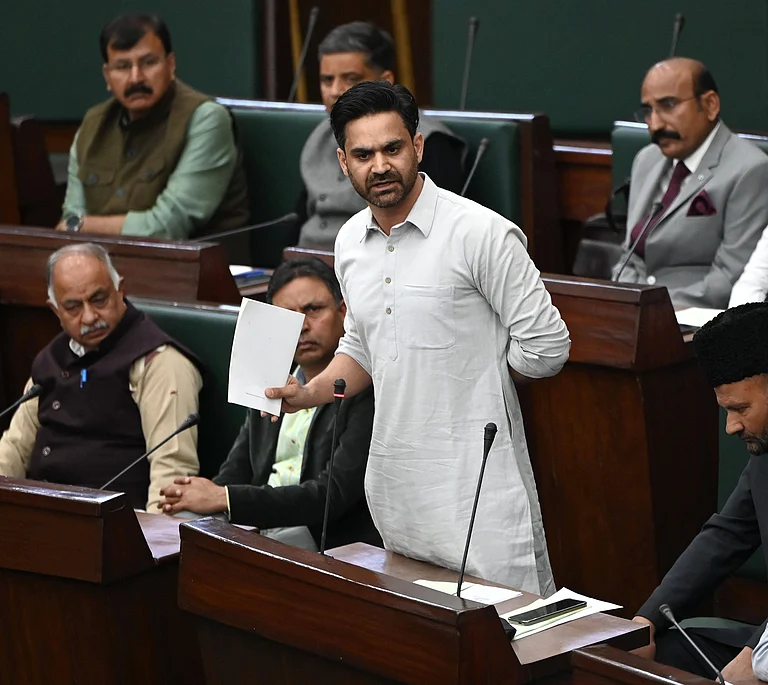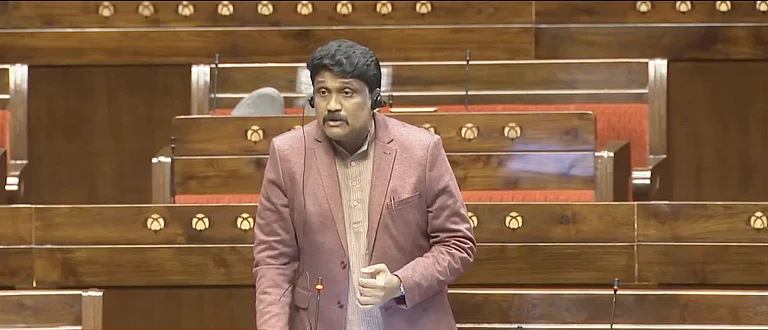The parents had a degree of entrenched bias that such allurements could not erase. The way they saw it, if fixing punctures at the local garage was what the child would have to end up doing after completing school, why bother with education at all? Why shouldn’t the child start working immediately, instead of ‘wasting time’ in school? That way, the child would not only acquire a useful skill and bring home some money but also wouldn’t have any hang-ups about doing physical work when he grew up.
This hard-nosed logic brought home an important truth to the Gargs. School education could not be held to be a grand virtue in itself, and forced down the throats of subjects, if it did not connect in a relevant way to their immediate life-context. Especially to those struggling at subsistence level. It was then that they decided to incorporate vocational training into the school curriculum. Explains S.B. Garg: "Unless the parents felt their kids would learn something at school that would help them earn a living, they were simply not interested."
Garg—who retired as head of the chemistry department at Gitanjali College, a post-graduate government college in Bhopal, in 1995—had made a vital correction in his own blueprint. The Acharya Sriram Middle School on the Gayatri temple premises in Bhopal now trains 184 students in making agarbattis and voltage stabilisers and repairing electrical appliances. This is in addition to the normal curriculum of any government-run school.
Of course, the school had its own economics to settle. Since it does not charge fees, it has to generate alternate funds. Much of this comes from a scheme under which well-to-do members of the Gayatri Parivar—the social body that runs the temple—and also outsiders "adopt" students by paying Rs 50 per month per student. "We don’t use the word ‘adoption’ here. That wouldn’t go down well with the parents. We call the scheme Manas Putra/Putri (godson/daughter)," says Durgawati, the professor’s wife, herself a retired government school teacher.
Help comes from other quarters too. An Indore-based businessman donates uniforms every year while the local Lion’s Club has given all the tools required to run the electricians’ course. Also, for the last four years, a charitable trust has been regularly sending refreshments for the children three days a week.
There was another ticklish issue. An overwhelming majority of the prospective students were Dalits. Initially, there was opposition from the Gayatri Parivar members. They did not want Dalits to enter the temple premises. "But we stood our ground. We told them it would be utterly shameful that those who professed to believe in the philosophy of the Gayatri Parivar, which talks of equality and is against rituals, should be concerned about the caste and creed of temple visitors," says Garg. So, now, Dalit as well as Muslim students have free access to the temple.
The Gargs say that besides teaching the three R’s and vocational skills, they also try to inculcate good hygiene and social values among the children. "In the initial years, I myself massaged and bathed the children before taking them to class," says Durgawati. And on birthdays, children take a vow to quit one bad habit before all classmates. It may be smoking beedi or eating gutkha or even stealing money. This public commitment, coupled with the weaning into a normal economic life, is intended as a bulwark against a brutalised adulthood.
Though there are numerous government schemes under which the Gargs can seek funds for running the school, till date they have refrained from applying for government subsidy. And neither do they intend to do so in the future. Now 12 years into its life, the school is housed in a three-storeyed building and has also been posting excellent results. Last year, all the students cleared the Class V examination while seventy per cent cleared Class viii. To find out more, contact: Acharya Sriram Middle school, Gayatri Shaktipeeth, Hoshangabad Road, Bhopal. Ph: 0755-2556286
























